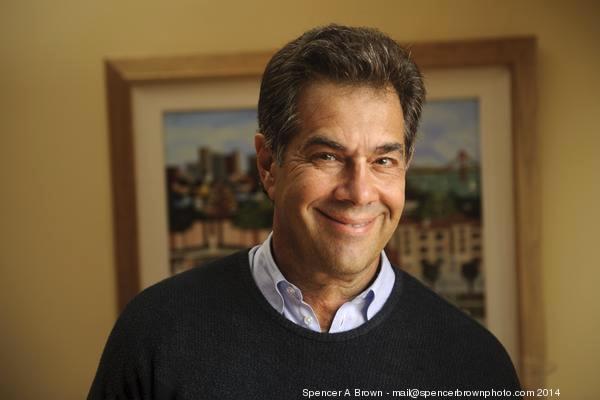Bay Area sports agent offers behind-the-scenes look at athlete contracts
Julia Cooper
Researcher-
San Francisco Business Times
Hashing out a professional athlete’s contract is more than just a numbers game according to Steve Baker, a sports agent and president of Baker Sports Management.
The San Francisco-based attorney has been in the business for the past three decades and has worked with Bay Area athletes including former 49ers quarterback Jeff Garcia and more recently, Shayne Skov, an All-American linebacker from Stanford University.
Baker spoke with the Business Times about negotiating contracts, which teams are doing it right, and the Bay Area athletes that have the potential to be national-level superstars.
What do you look for when negotiating an athlete’s contract?
When valuing a contract there’s many moving pieces, but as a general rule what you look at is the degree of guarantee and the amount of money the player should expect to make in one, two and three years of the contract.
How do agents make a case for the value of your clients?
You certainly look at numbers. You use statistics and everything in your arsenal to argue why a player has the best value. When you’re doing a deal as an agent you basically try to analyze every argument in favor of your client and also try to be aware of every argument against your client.
For example, Colin Kaepernick has had an unprecedented level of success for someone as young as he is, so that’s the argument Kaepernick’s agent can make. In the case of Buster Posey, he is more than just a statistic. Buster Posey is the heart and soul of the San Francisco Giants. In the case of Madison Bumgarner, left-handed starters who can put in the number of innings that Bumgarner can do is extremely rare.
How do you rate Bay Area teams when it comes to athlete contracts?
The 49ers and the Giants front offices are among the best front offices in their sport. The smartest teams figure out who their core players are and try to get them under contract before they ever hit free agency, before those players have maximum leverage. With the Giants, an example would be Madison Bumgarner, and with the 49ers, an example would be Colin Kaepernick.
You would never want Buster Posey to hit free agency. You would never want Madison Bumgarner to hit free agency. If Madison Bumgarner hit the free agent market at his present value, he would become one of the highest-paid pitchers in baseball. The Giants very adroitly offered him a significant amount of up-front money in exchange for buying out arbitration. Bumgarner left a lot of money on the table, but in exchange for security, which for a pitcher where you can go out at any time makes a lot of sense.
Do athletes receive any perks in their contract beyond money?
You really can’t do that now because anything players negotiate for counts against the cap. For example, a player wouldn’t really negotiate for a luxury box suite because that would count against the cap. You might as well just take the money. The real negotiable terms of a contract are the amount of money, the degree of guarantee of the money, and the timing of when the money is paid.
Do any current Bay Area athletes have the potential to be superstars?
I think Stephen Curry, Buster Posey and Colin Kaepernick are among the local athletes that have the potential to become huge national brands because all three are among the best at their position as players in their sport, and also very popular players.
What factors can play a role when an athlete is signing with a team?
When Alex Smith was a free agent last time, he took less money to come back to the 49ers than going to the Miami Dolphins. It was worth a lot of money to Alex Smith to return to a team that had a chance to compete in the Super Bowl. There are many players who will leave money on the table and give a hometown discount to the team they play for if it increases their chance to win.
One of the smartest business decisions I’ve ever seen an athlete make is Lebron James resigning with Cleveland. He signed with a team with the salary cap room to sign several other young superior players, which Miami didn’t have. Lebron, a brand that was already the biggest brand in all of sports, became far more valuable by him going to Cleveland.
Are athletes overpaid?
I realize people think that athletes are overpaid, and I rather strongly believe that not to be true. The only time that an athlete is overpaid is when a player signs a contract with a team that overvalues a player’s skills; like in the case of Barry Zito. Athletes make their money within a construct that is extremely profitable.
Julia Cooper is an editorial researcher at the San Francisco Business Times.
